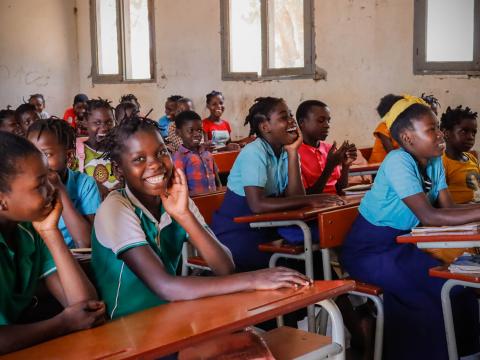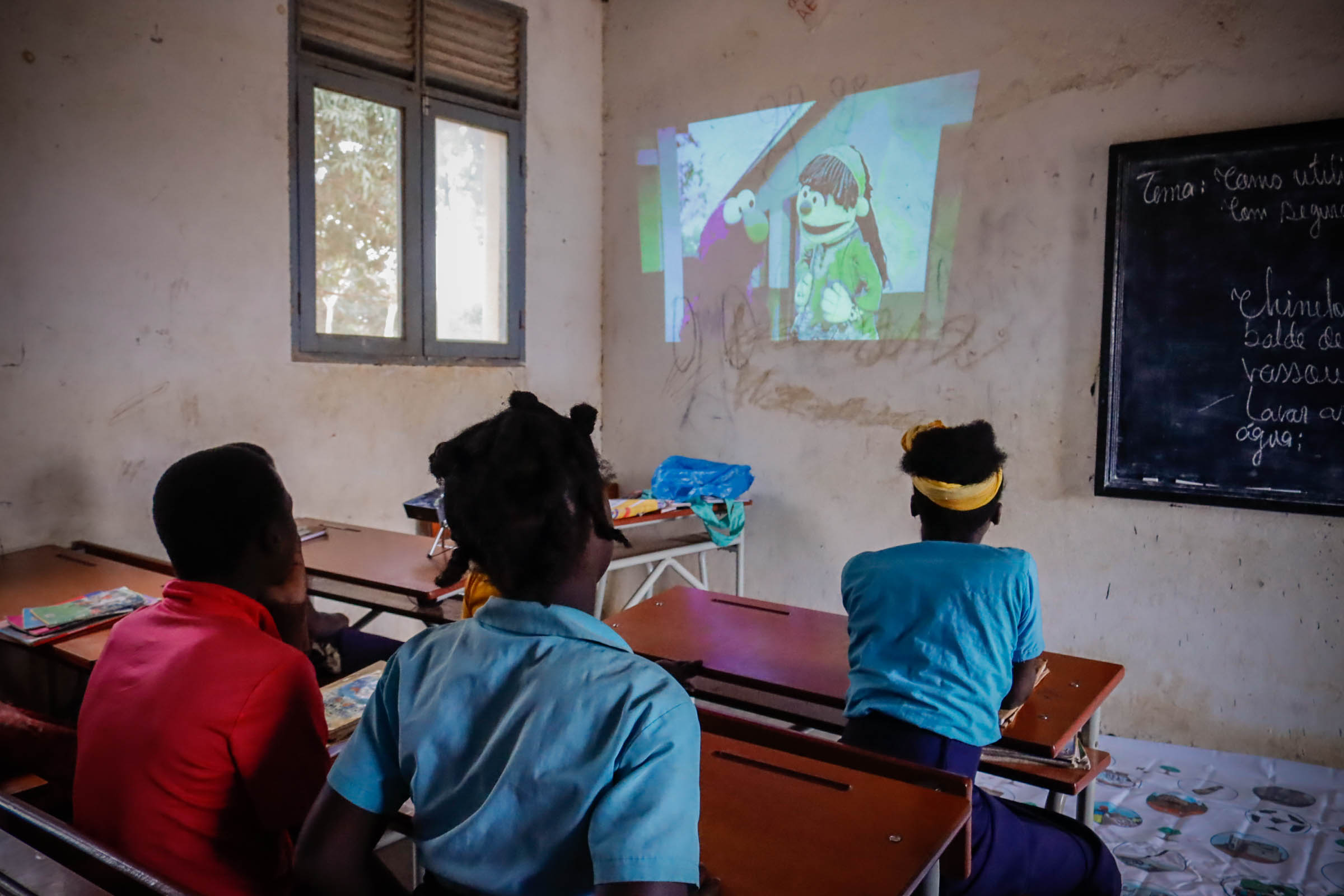WASH UP! is teaching lessons for life: Students take pride in their clean school

There are more than 2,000 students enrolled, from 1st to 7th grade, in Imala Primary School, from Muecate district, in Nampula Province, north of Mozambique, being one of the biggest schools in the region. Here, they spend most of their productive day learning in class and engaging in fun games during breaks.
With a large student population, maintaining the school clean and attractive is a demand that requires willingness and imagination. WASH UP! curriculum came at the right time to offer guidance so that students and teachers can better understand how to create a clean and attractive environment in school.
The introduction of WASH UP! learning modules renewed students’ interest in attending classes, since this program, developed by Sesame Workshop and World Vision, allows them to learn in a new exciting way.
Marília, 14-year-old, is a 6th-grade student and she feels that her awareness of good hygiene and sanitation practices is only increasing with the WASH UP! lessons. After a class, she was glad to share what she learned.
“Today I’ve learned that we must keep our bathrooms clean, before and after we use it, and make sure that we wash our hands and not enter the toilets barefoot to avoid catching diseases”, she explained. As part of the WASH UP! program, in Imala was established a WASH Club where the students have taken into their own hands the responsibility of overseeing the correct use and storage of water, soup, and conditions of the toilets.

Cleaning is no longer an obligation, but a daily routine in which students take pride. “We are divided into small groups with different tasks, such as making sure that water is always available in the toilets, and keeping our classrooms and playground clean”, explained Marília.
Teachers are detrimental to enlightening students to adopt healthy behaviours. António Camela is responsible for implementing WASH UP! curriculum in Imala Primary School.
The tools at his disposal – Pico projector, story mat, slides and ladder game, storybooks, and others - make the lessons instructive, and fun to watch, with students engaging during the entire class. In the classroom, António Camela conducts the session like a maestro, bringing thought-provoking questions, and portraying real-life examples.
For the teacher, the combination of WASH UP! curriculum and the establishment of the WASH Club is motivating students to act more responsibly to create a clean and healthy school.
“Before the introduction of the WASH UP! curriculum, children knew little about good water, sanitation, and hygiene practices. When the project (Educating the Children Together – Phase III) began, we gain the support to create a WASH Club. As a result, our school is always clean. The students also replicate what they learn in their homes, sensitizing friends and family relatives to manage water and use the latrines correctly”, pointed António Camela.
The ECT-3 project, implemented by World Vision-Moçambique (WV-Moç), is conducting WASH UP! Curriculum in 160 schools of Muecate and Nacarôa, in Nampula province, as a part of the behaviour change approach, aiming the increased use of health, nutrition, and dietary practices among school-aged children. WASH UP! is a play-centered curriculum that emphasizes healthy hygiene and nutrition habits, through comic storybooks and other literacy materials that encourage healthy behaviours as well as literacy.
To ensure the continuation of WASH Clubs beyond the life of the project, WV-Moç trained 50 teachers to be Trainer of Trainers (16 Females and 34 Males) and 6 Master Trainers (2 Females and 4 Males) to promote the methodology in each school. Within WASH UP! Activities, ECT-3 project also promotes meetings with School Head Teachers and Deputy-School Head Teachers to bring awareness about the importance of good practices of WASH in the schools.
By Benjamim Capito